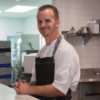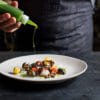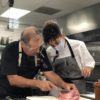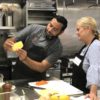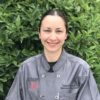How Long Does Culinary School Take to Complete?
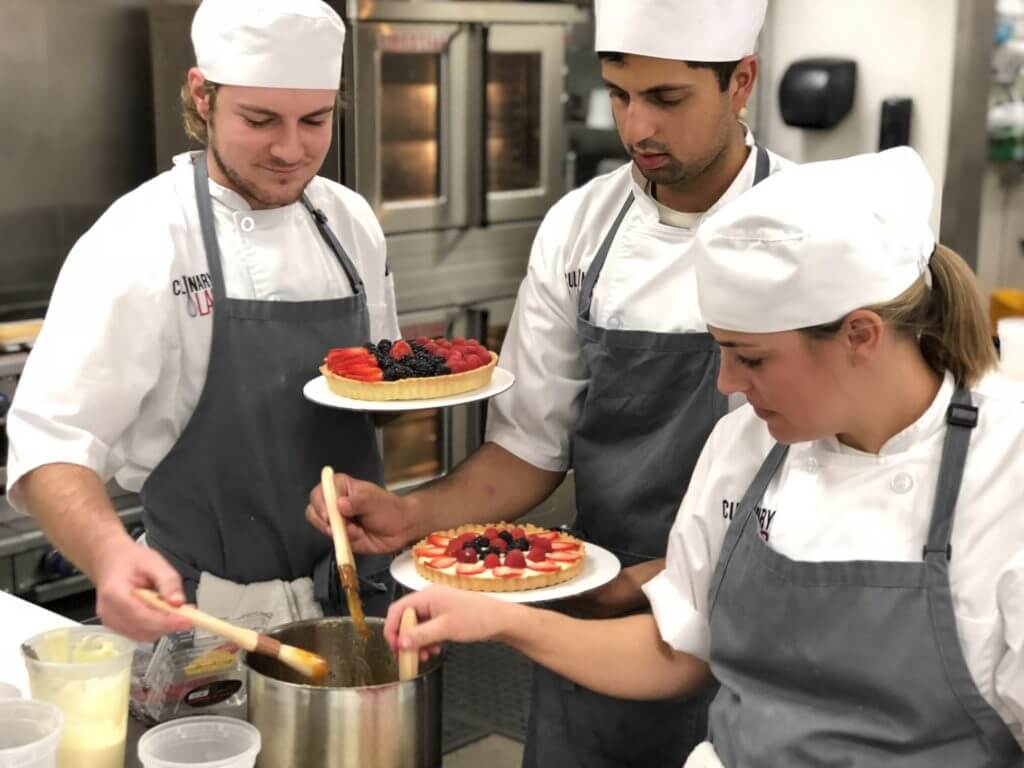
So, you’ve decided that a culinary education is in your future. As you look at school choices (yes, there are a lot of them!), you may wonder: how long does it take to complete culinary school?
The answer isn’t simple.
You need to take into account the whole gamut: From time spent learning basic principles and kitchen techniques, to advanced topics and obtaining actual hands-on experience.
But in this article, we’re going to share our experience so you can gain an understanding of the time you’ll spend in culinary school – no matter what type of culinary education you choose…
How Long Does it Take to Finish Culinary School?
Culinary and cooking school can take anywhere from a few short months to four years, depending on the chosen length of culinary school.
There are different options you can choose when you enroll, and factors that can affect the length of your studies. For instance, professional culinary training can take 2 to 4 years.
The challenge is choosing the one that’s right for you.
Types of Culinary School Programs
There are dedicated culinary schools where that’s all they do; there are community colleges that offer a certificate or degree in a more classroom-focused experience; and there are four-year degree programs that combine culinary arts with business and hospitality skills.
What will be the path of your education? The answer really shapes what comes next (no pressure!).
Diploma or Certificate Programs
- A culinary school diploma or certificate program provides you with the culinary skills required for entry-level positions.
- A diploma or certificate can be earned in about six to 12 months, on average
- Time frame depends on how much time you can devote to school.
- It combines classroom learning and hands-on experience in the field of study.
- You gain real-world career experience.
- There are often financing options available to help with the cost of a diploma or certificate program (i.e. budget-friendly monthly payments).
Diploma or certificate programs typically offer lesson-based classes, each with a specific focus. You will get hands-on experience as you learn cooking techniques, practice your skills and oftentimes work in a real-world environment, a HUGE plus for your career.
Upon successful completion of the classes, you will receive a formal diploma or certificate that you can proudly hang on your wall.
EXAMPLE: Some diploma programs, such as Stratford University, offer a broad overview of the major areas of cooking, such as sauces, soups and stocks; main dishes; vegetables; baking; and other specialties, to name a few. Other programs are focused on a type of cuisine, food preparation technique or food presentation style.
Degree Programs
A college degree offers a variety of programs for the aspiring chef. Whether you choose an “arts” or “science” approach, you will find different culinary training options at the associate’s, bachelor’s and master’s level.
- An associate’s degree can be earned in two years; bachelor’s degree in four years; master’s degree in two years (after you attain a bachelor’s degree).
- Time frame depends on how much time you can devote to school.
- Different colleges and universities emphasize different areas of the industry.
- According to the BLS, the most common course of study for aspiring chefs is an Associate in Culinary Arts Degree program.
- Financial aid, or a student loan, is often available to help with the cost of your education (i.e. loans that have to be paid back with interest).
The type of degree you pursue will determine the length and depth of your studies.
An associate’s degree includes a two-year curriculum that focuses on general education classes, such as English, math and writing, in addition to classes that may cover something like this: learning culinary theory and concepts, how to prepare specific dishes and gaining exposure to different cuisines. Specialized culinary classes may also focus on a specific area, such as pastry or baking.
A Culinary Arts focus is a common degree choice. Additional areas of study at the associate’s level, as offered by Los Angeles Trade-Tech Community College, include Professional Baking and Restaurant Management.
A bachelor’s degree includes a four-year curriculum that may expand on the associate’s degree and be more focused on the business aspect of cooking, such as management or hospitality.
In addition to meeting general education requirements, you will have an additional two years of instruction in other areas, such as budgeting, inventory and managing a staff (the business stuff).
Culinary Arts, Culinary Management, Restaurant Management and Hospitality are common degree choices. Johnson and Wales University offers a Liberal Arts program for aspiring chefs, providing a broad spectrum of knowledge and skills.
A master’s degree includes an additional two years of instruction after a bachelor’s degree is completed. You usually need to complete a thesis once you have finished all of your coursework. Also, since these degrees dive deeper into culinary theory and concepts, they often involve more intensive focus, such as nutrition, food science or hospitality.
Whether you choose to pursue Culinary Arts, Culinary Management or Liberal Arts degree, or commit to a higher-level master’s education, you will find culinary training options and pastry making options to meet your education needs at the college or university level.
Culinary Schools
Let’s be realistic here – EVERYONE starts at the bottom. But there are many success stories from those who have done just that.
At a culinary school, you will receive a comprehensive culinary education in a relatively short span of time, providing the fast-track to a new career. The application process is also relatively easy to get into culinary school.
Culinary schools such as the Institute of Culinary Education offer a Restaurant Management program that focuses on how to “oversee, grow, open or own a culinary business.”
At CulinaryLab Cooking School, we use a hybrid approach that combines hands-on culinary training with a with mentorship, apprenticeship, and job placement. Our focus is on getting students immersed in the culinary industry as quickly as possible. This hybrid approach pairs students with a chef mentor, providing in-depth industry experience apprenticing in a real-world environment.
And with the BLS estimating that “employment of chefs and head cooks is projected to grow 10 percent from 2016 to 2026, faster than the average for all occupations,” it’s a great time to start culinary school.
Ready to Start Culinary School?
Still have questions about culinary school? We’ll be glad to help. For more information, schedule a tour, call 714-486-4406, or email us.
You’ll receive an education that sets you up for an exciting and promising future in the kitchen.
